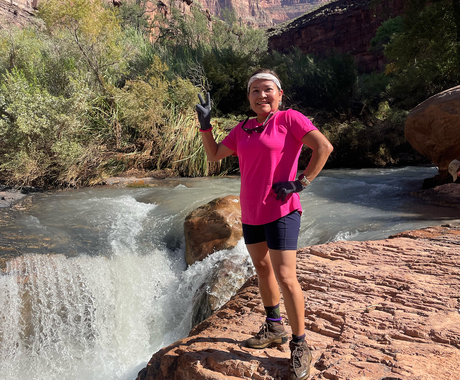Jon Bailey, guest writer, turns his attention to high-quality early childhood education as a means of addressing rural income inequality.
Investments in early education from birth to 5 years old, particularly for disadvantaged children, have numerous economic and social benefits. They reduce economic inequality.
Research by James J. Heckman, professor at the University of Chicago and 2000 Nobel Prize awardee in economics, found investments in early childhood education result in 7 benefits:
- Reduced educational achievement gaps
- Reduced need for special education
- Increased likelihood of healthier lifestyles
- Reduced crime rate
- Reduced overall social costs
- A 7 to 10% return on investment for every dollar invested in high-quality early childhood education
- Greater social and economic equity
Rural areas face a host of challenges in providing early childhood and pre-kindergarten education. For rural schools, these include funding and funding restrictions, lack of qualified early childhood educators and paraprofessionals, and facility needs (Rural School and Community Trust).
Rural families also encounter obstacles in obtaining early childhood education for their children. They have less access to pre-school programs. Even though a high number of rural families are low-income, many have incomes not quite low enough to qualify for Head Start and the early childhood programs it provides.
Transportation is also a significant barrier for rural families for pre-kindergarten programs such as Head Start. Like many items needed by rural families, they may exist dozens or more miles away and thus are practically inaccessible.
Early childhood education is a hit and miss proposition in Great Plains states. Of 9 Great Plains states, 4 have no pre-kindergarten education state programs. They depend on special education and limited Head Start for any early childhood education (South Dakota, North Dakota, Montana, and Wyoming). Iowa, on the other hand, has one of the nation’s best state early childhood education programs.
The table below shows how many 3 and 4 year olds are enrolled in any pre-kindergarten program (including Head Start and special education) in Great Plains states.
| State | 3 year olds in pre-K programs |
4 year olds in pre-K programs |
| Colorado | 18% | 36% |
| Iowa | 13% | 71% |
| Kansas | 14% | 36% |
| Minnesota | 10% | 14% |
| Montana | 14% | 21% |
| Nebraska | 20% | 39% |
| North Dakota | 15% | 20% |
| South Dakota | 17% | 23% |
| Wyoming | 8% | 11% |
| United States | 15% | 42% |
Source: National Institute for Early Education Research, 2014 data
All Great Plains states except Iowa are below the national enrollment figure for 4 year olds in an early education program. At their best, about 3 in 10 Great Plains 4 year olds (again, except for Iowa 4 year olds) are enrolled in a pre-kindergarten program. This is far from the universal early childhood education needed to address income inequality.
In the United States, only 40% of eligible children have access to Head Start. Less than a third of all 4 year olds in the nation are enrolled in a state funded pre-kindergarten program. And the problem is more widespread in rural areas.
Numerous public policy options are available to make early childhood education universal.
The first, and basic policy response, is to create a state pre-kindergarten program with adequate funding through the regular state school funding mechanism. If such a program already exists, enhance funding for it to enable more children to enroll.
States should recognize that pre-kindergarten education investments are economic development. They should treat them as a means to attract and keep residents and meet workforce availability issues (both education and non-education workforce issues).
Most state pre-kindergarten education funding is through grants to school districts, and most grants are on a competitive basis. That should change to a formula through the state school funding mechanism. Rural school districts generally lack the capacity to participate in a competitive process (grant writing expertise, for example). Thus they lose out on necessary funding.
Rural school districts should be provided greater flexibility for early childhood education funding. Funding should recognize rural needs for facilities, facility adaptation, and transportation.
Investments should be made in early childhood education teaching careers. Investments in training, recruiting through items like student loan relief, increased degree programs for rural residents in early childhood education (both at the student level and the degree awarding institution level), and “grow your own” programs ( enhancing interest in early childhood education careers among middle and high school students).
Salaries for early childhood education professionals also need greater investment. In Nebraska, for example, the University of Nebraska-Lincoln recently reported the early childhood education workforce is at an all-time low. The salary disparity between K-12 teachers and those specializing in early childhood education is one reason. Workforce issues are an even greater challenge in rural areas.
All early childhood education policy should operate as place-based, how rural areas develop and how rural areas function as places to live, work, operate a business, and how to preserve the heritage of rural places.
Early childhood education is not a silver bullet solution to income inequality. By itself universal high-quality early childhood education will not “solve” income inequality and provide all the benefits of a more economically and socially equitable society. But bringing Great Plains states and the nation closer to universal enrollment with greater investments in early childhood education is certainly one of the responses to income inequality. It should be put into action without delay.
Related:
Four More Ways to Address Income Inequality on the Rural Great Plains
Four Ways to Address Income Inequity on the Rural Great Plains
Food Environment on the Rural Great Plains
Part 2: Income Inequality, Health, and the Rural Great Plains
Income Inequality, Health, and Rural
Is Rural America Hazardous to Your Health?
Jon M. Bailey is a rural policy and research expert and former Center for Rural Affairs Policy and Research Director.





